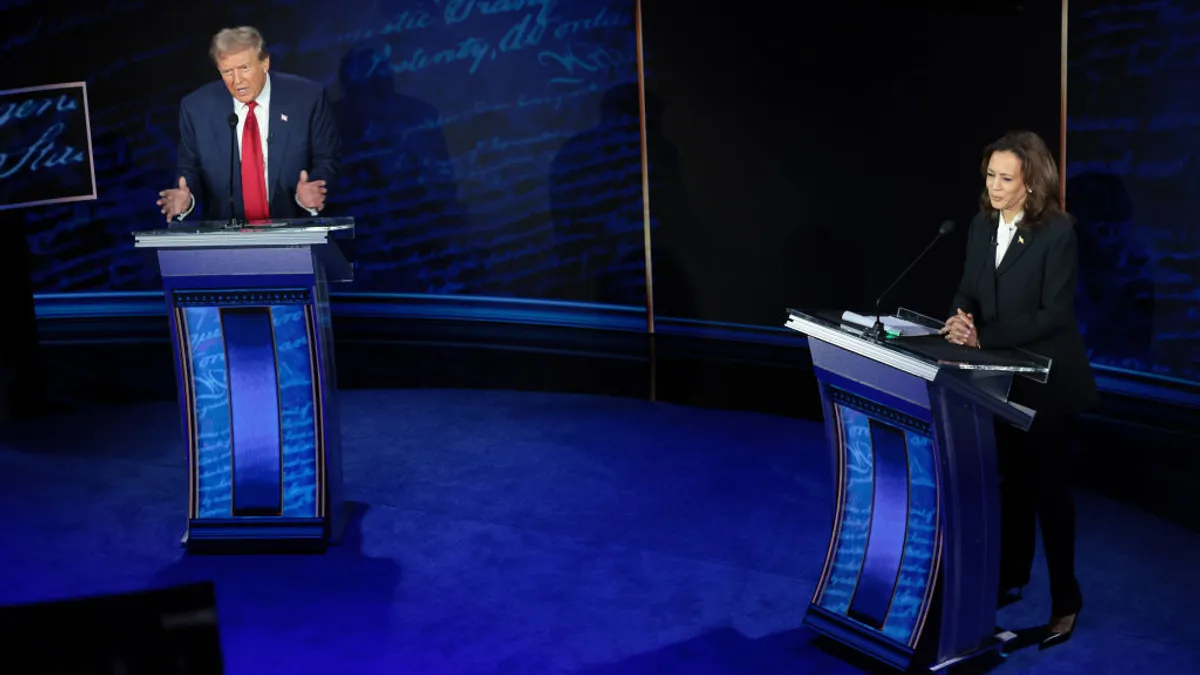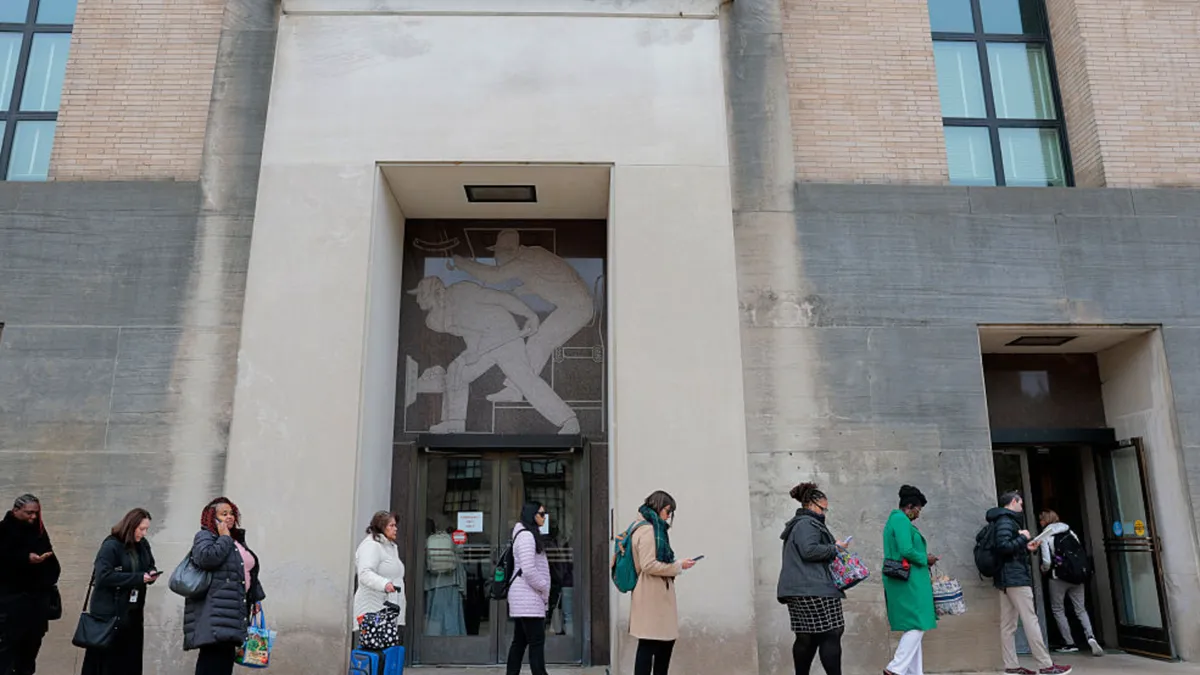With just a few weeks left until the election, Vice President Kamala Harris and former President Donald Trump are making their final appeals to the American public in their runs for the oval office. While Harris has sharpened her policy proposals, Trump has pulled support for some policies he previously touted that target pharma.
In particular, Trump's publicly stated views have become more aligned with industry lobbyists who’ve been gunning to overturn provisions of the Inflation Reduction Act such as Medicare price negotiations.
The negotiations have long been opposed as “price setting” measures by many in the pharma industry, with Big Pharma executives threatening that such actions would result in cuts to research and development.
Drugmakers and Medicare have already finished the negotiation process for the first 10 selected drugs, with the new prices paid by Medicare set to go into effect in 2026 despite several industry lawsuits. And Harris and Trump may support opposing policy plans to either double down or pull back the IRA provisions.
Harris’ IRA expansion
As vice president, Harris cemented her support of Medicare’s newly-found price negotiation power when she cast the deciding Congressional vote to pass the IRA in 2022. Since announcing her candidacy, Harris has published more details about her policy goals and made public comments that provide further insight into how her presidency could impact the pharma industry.
Harris’ plan promises to expand several IRA policies, including the $35 monthly insulin cap and $2,000 annual out-of-pocket maximum from just Medicare recipients to all Americans, even those with private insurance, while ramping up the speed of Medicare price negotiations.
In general, her plan outlines that she aims “to cover more drugs and lower prices faster.” She also doubled down on how she would use Medicare savings last week during an appearance on “The View,” stating that expanded savings from the drug price negotiations could go toward Medicare’s coverage of in-home healthcare, although she did not specify costs or offer more details.
Despite her support for expanding the negotiation program, Harris has garnered significantly more financial backing from the pharma industry. Harris has received more than $5.3 million in campaign contributions from industry players in 2023 and 2024, compared to less than $900,000 for Trump, according to Open Secrets, which included contributions from drug manufacturers as well as other health product industry entities in its data.
The Harris plan also takes aim at pharmacy benefit managers, with the goal to “crack down on pharmaceutical companies that block competition and abusive practices by pharmaceutical middlemen who squeeze small pharmacies’ profits and raise costs for consumers.”
Her stance has attracted support from Mark Cuban, who launched the drug company Cost Plus Drugs with the intent to bypass PBMs and offer discounted prices on generic pharmaceuticals. Cuban has pushed for insurers to ditch PBMs and called for price contracts to be made public. His alignment with Harris signals the support for further PBM transparency on her end, STAT News speculated.
Trump’s rising industry favorability
During his first run for president in 2016, Trump often took a hard stance against pharma, promising to give Medicare the power to negotiate prices. As Harris pointed out in their Sept. 10 debate, he never followed through on that plan to implement negotiations. And he has since positioned himself further toward favoring pharma’s top lobbying group, PhRMA.
Namely, Trump signed an executive order in 2020 with a “most favored nations” drug pricing plan that would ensure Medicare didn’t pay drug prices that were higher than other developed nations. At the time, experts doubted the order would have much impact, NPR reported. Now, he's dropped support for the idea altogether, his campaign confirmed to media outlets this month.
The move falls in line with the position of PhRMA, the industry’s largest lobbying group with a budget of $16.9 million, according to Open Secrets.
“A ‘most favored nation’ approach to international reference pricing is tantamount to imposing price controls from other countries to the United States,” PhRMA president and CEO Stephen Ubl said during a media briefing last week. “So we remain opposed to that.”
Ubl also stated PhRMA supports the IRA provisions that reduce out-of-pocket expenses for patients.
PhRMA also voiced its support for Trump’s focus on lowering prices by cracking down on PBMs. He previously took aim at PBMs with a plan to eliminate the rebate business structure, but he also backed away from implementing that plan. And he hasn’t picked up the PBM fight on the 2024 campaign trail in his talking points, The New York Times reported.
“We have been heartened by former President Trump's support before going after middlemen,” Stephen Ubl, president and CEO of PhRMA, said during a panel hosted by the association last week. “He was really the first policymaker to take this issue seriously and try to essentially outlaw rebates, which we believe should be making their way to patients at the point of sale.”
It’s also up in the air whether Trump would try to repeal the Medicare price negotiation provisions in the IRA should he secure a second term in the election. He has taken aim at the environmental provisions within the sweeping law, but has not clarified his position regarding policies that impact pharma.
However, Project 2025, a proposed blueprint for the next Republican administration published by conservative group The Heritage Foundation calls for a complete repeal of the drug pricing provisions. Although the Harris campaign maintains that Trump plans to implement many of the ideas in Project 2025, Trump has distanced himself from the controversial document.



















